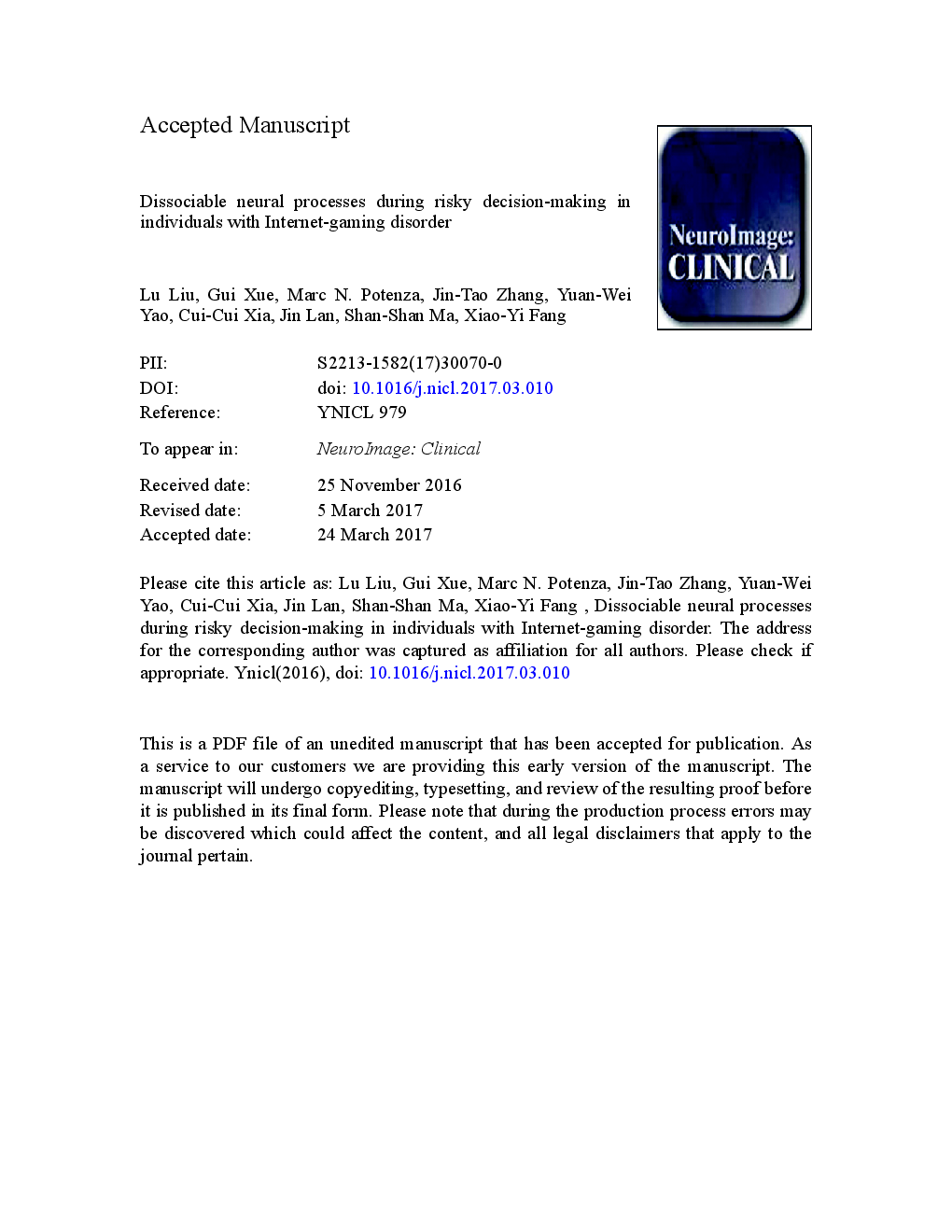ترجمه فارسی عنوان مقاله
فرآیندهای عصبی قابل حل در زمان تصمیم گیری خطرناک در افراد مبتلا به اختلال بازیابی اینترنت
عنوان انگلیسی
Dissociable neural processes during risky decision-making in individuals with Internet-gaming disorder
| کد مقاله | سال انتشار | تعداد صفحات مقاله انگلیسی |
|---|---|---|
| 136220 | 2017 | 41 صفحه PDF |
منبع

Publisher : Elsevier - Science Direct (الزویر - ساینس دایرکت)
Journal : NeuroImage: Clinical, Volume 14, 2017, Pages 741-749

